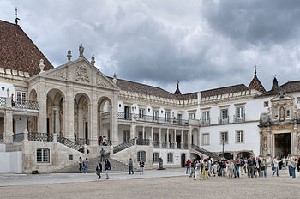Approaching Methodological Issues to Research Entangled Cities
06 – 07 November 2018, Lisbon – Coimbra (Portugal)
The international workshop “Approaching Methodological Issues to Research Entangled Cities” (Lisbon 6th of November and Coimbra 7th November 2018) is organised by ECHOES Work Package 4 (WP4) – coordinated by the Centre for Social Studies of the University of Coimbra (Portugal) and The Federal University of Rio de Janeiro State (UNIRIO – Brazil) – in collaboration with the Work Package 1 (WP1) – coordinated by Aarhus University (Denmark). The main objectives of the workshop are to strengthen the methodological structure of the ECHOES project and to identify and deal with challenges as they emerge along the research. Workshop activities include individual and group presentations, round tables, technical visit and wide interaction and debate between ECHOES researcher and with WP4 Research partners in Lisbon. The workshop is part of a number of similar activities carried out within the ECHOES project among different partner and constitute a fundamental occasion to strengthen the methodological and conceptual structure of the research. Furthermore, it creates symmetries between the different research groups that are integrating the project in a range of countries and that are working in a range of empirical cases. For these reasons, this event is also an occasion for mutual learning between ECHOES researchers and research partners.
The programme of the first day starts with the welcome speeches followed by a panel entitled “Mapping the fieldwork and methodological challenges” in which WP4 research coordinators present paper exploring the state of the art of the fieldwork in the entangled cities (Lisbon, Rio de Janeiro, Copenhagen and Nuuk) followed by a round of comments from WP1 colleagues and debate. During the afternoon the panel “Entangled cities in multi sectoral research” explores the different perspectives from research partners on the field. Partners include the Afro-descendants association DJASS and the National Ethnology Museum while academics internal and external to the project completes the panel. The day ends with the technical visit to the harbour area of Lisbon, a tour guided by the Afro-descendant association Batoto Yetu Portugal. The morning of the second day of the programme includes the round table entitled “Heritage as experience of alternative decolonial knowledge”, which integrates the programme of the International Conference “Imagining the future. Knowledges, experiences, alternatives”, in celebration of the 40th anniversary of the Centre for Social Studies of the University of Coimbra and a tribute to its director, Boaventura de Sousa Santos. The international workshop ends with the business meeting taking place in the afternoon of the 7th of November.

